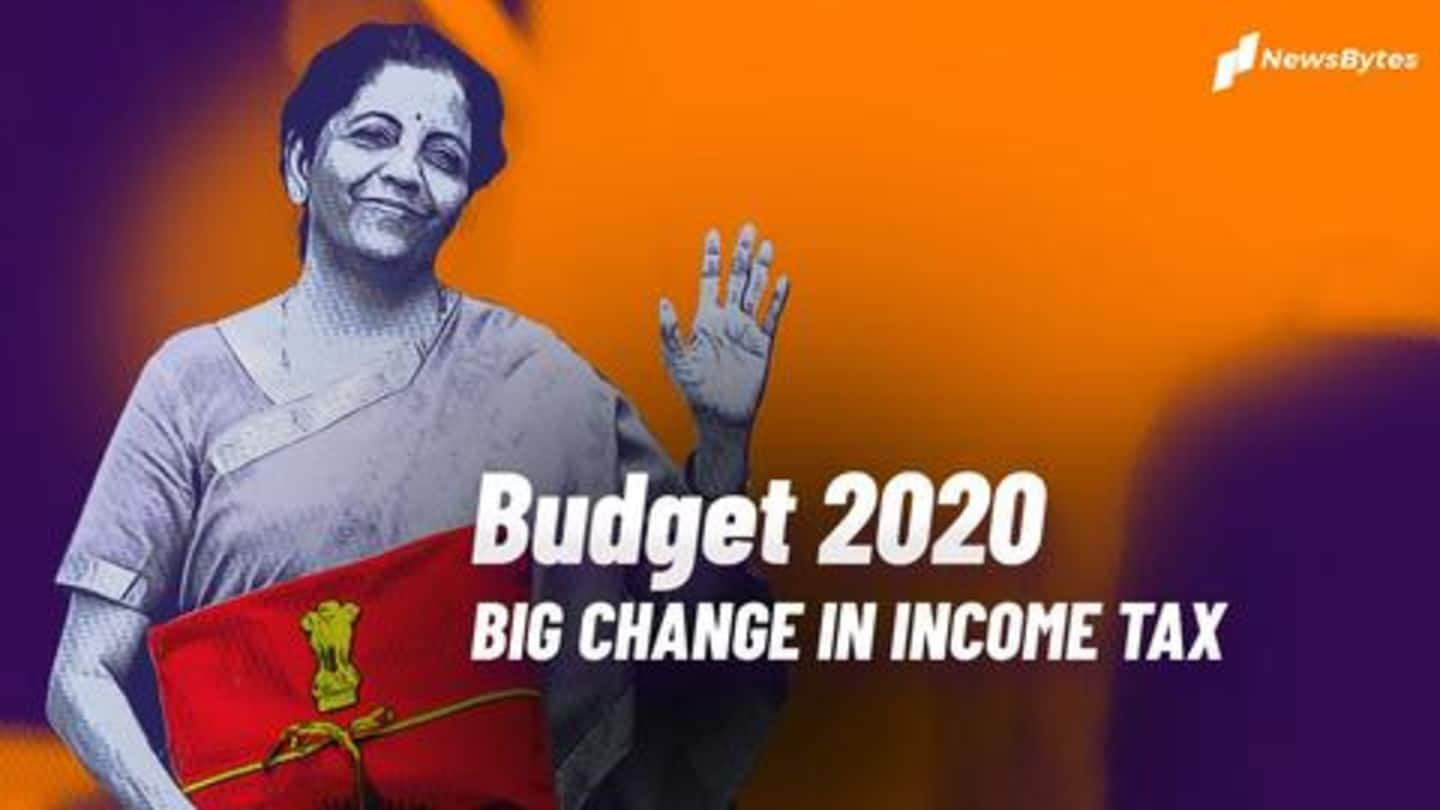
Union Budget 2020: New I-T Regime lowers tax, removes exemptions
What's the story
In a major development, Finance Minister Nirmala Sitharaman introduced a new simplified tax regime, which is available for those willing to opt out of exemptions and deductions. Notably, the new tax regime has lower taxes with new slabs. The taxpayers can still use the old regime which will continue having exemptions. She made the much-awaited announcement with a smile on her face.
Details
Living up to the expectations, Sitharaman brought down taxes
Under the new tax regime, those earning between Rs. 5-7.5 lakh will have to pay 10% tax, as opposed to 20% earlier. Those earning between Rs. 10-12.5 lakh will attract 20% tax, as opposed to 30%. The ones earning between Rs. 12.5-15 lakh will be asked to pay 25% tax, down from the existing 30%. Above Rs. 15 lakh, 30% tax would be levied.
Twitter Post
Salaried class gets a big relief
Big tax break for lower/middle income categories
— menaka doshi (@menakadoshi) February 1, 2020
Optional Personal Income Tax Regime - NO EXEMPTIONS
10%: Rs 5 – 7.5 lakh (Versus 20%)
15%: Rs 7.5 – 10 lakh (Versus 20%)
20%: Rs 10 – 12.5 lakh (Versus 30%)
25%: Rs 12.5 – 15 lakh (Versus 30%)
30%: Above Rs 15 lakh (Versus 30%)
Announcement
More than 100 exemptions exist, removed 70 of them: Sitharaman
In order to simplify the tax system, Sitharaman explained that as of now, more than 100 deductions and exemptions exist, but under the new regime, 70 of them have been removed. "Income Tax Act to be amended to enable faceless appeal," she asserted. Meanwhile, the new regime, that sent a wave of happiness across tax-payers, would cause a revenue loss of Rs. 48,000 crore.
Do you know?
DDT has now changed hands
More interestingly, the Dividend Distribution Tax (DDT) has shifted hands. Now, under the new rules, companies won't have to pay DDT, and the dividend will be taxed at the recipients' end at applicable rates.
Start-up taxes
Sitharaman, who spoke about entrepreneurs, also eased taxes for start-ups
In her budget speech, Sitharaman mentioned entrepreneurs multiple times, and towards the end announced measures to make them happy. She said start-ups that have a turnover up to Rs. 25 crore will be allowed 100% tax exemption on profits for three consecutive years, within a period of seven years. Sitharaman proposed to increase turnover limit from existing Rs. 25 crore to Rs. 100 crore.
ESOPs
A big reform was announced for ESOPs too
Not only founders but Sitharaman also kept in mind the employees who are given ESOPs by start-ups. She deferred tax payment on ESOPs by five years, or till the time the employee quits the start-up or sells their shares, whichever is earliest. Sitharaman underscored that under current rules, employees don't sell their shares immediately, but this rule will change that.
Response
Start-ups can now reward talented employees better: Groww Founder
This announcement was welcomed by Harish Jain, Founder and COO of Groww. In an e-mail sent to NewsBytes, Jain said the earlier system levied taxes too early. "This will encourage more start-ups to get incorporated and create jobs. It will make it easier for start-ups to incentivize good talent and attract more skilled talent towards working in start-ups," he went on.